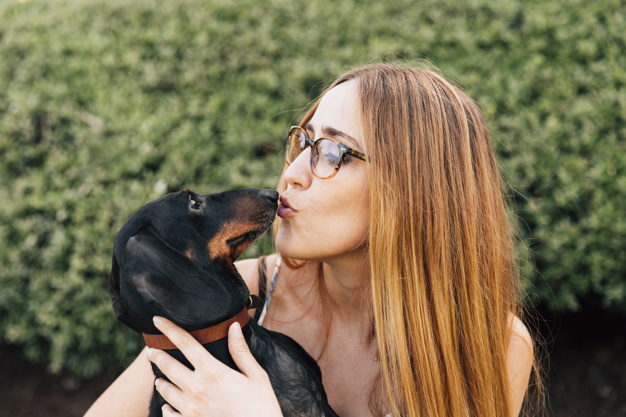In this article, we’ll answer the top ten questions about fleas on dogs. We’ll cover everything from what flea bites look like to whether dogs can get fleas in winter. We’ll also explore the various health risks associated with flea infestations, and provide tips for getting rid of fleas using natural treatments. Whether you’re dealing with a current flea problem or just want to be prepared for the future, this article is a must-read for all dog owners.
This article will cover the following:
1. What do dog fleas look like?
Fleas are small, wingless, flat insects with three pairs of legs. Fully matured adult fleas are about 1/8 inch long (1 to 3 mm). Fleas are a dark reddish-brown colour.
This is how a dog flea looks like under microscope:
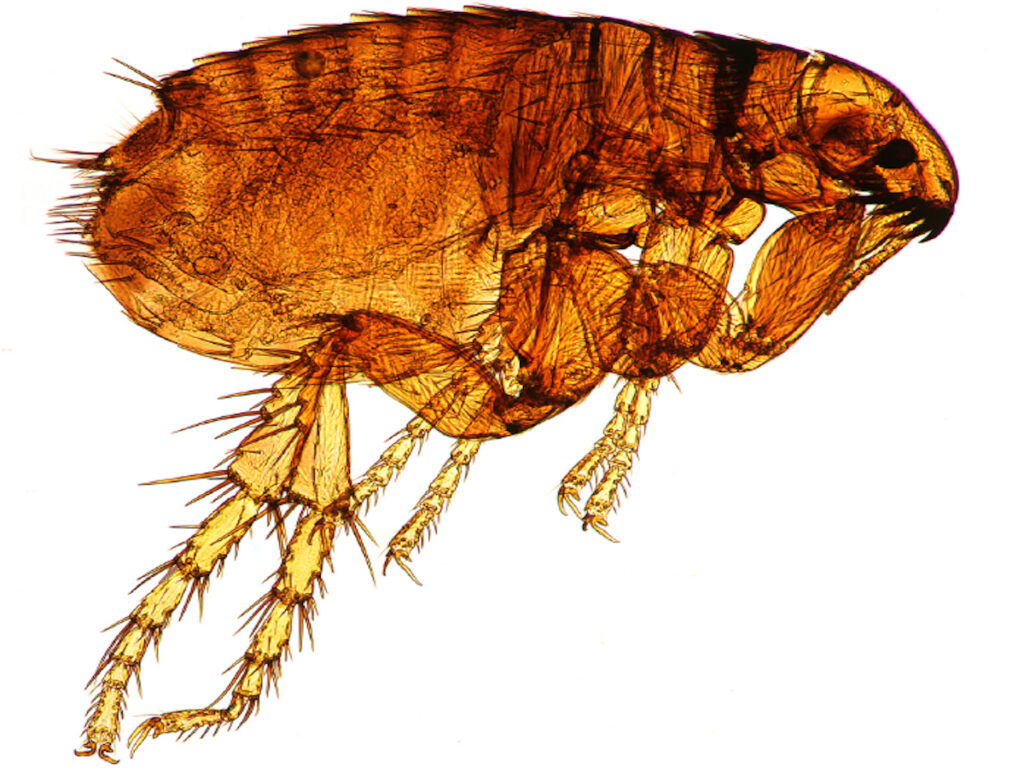
This is how the fleas look like on your dog:
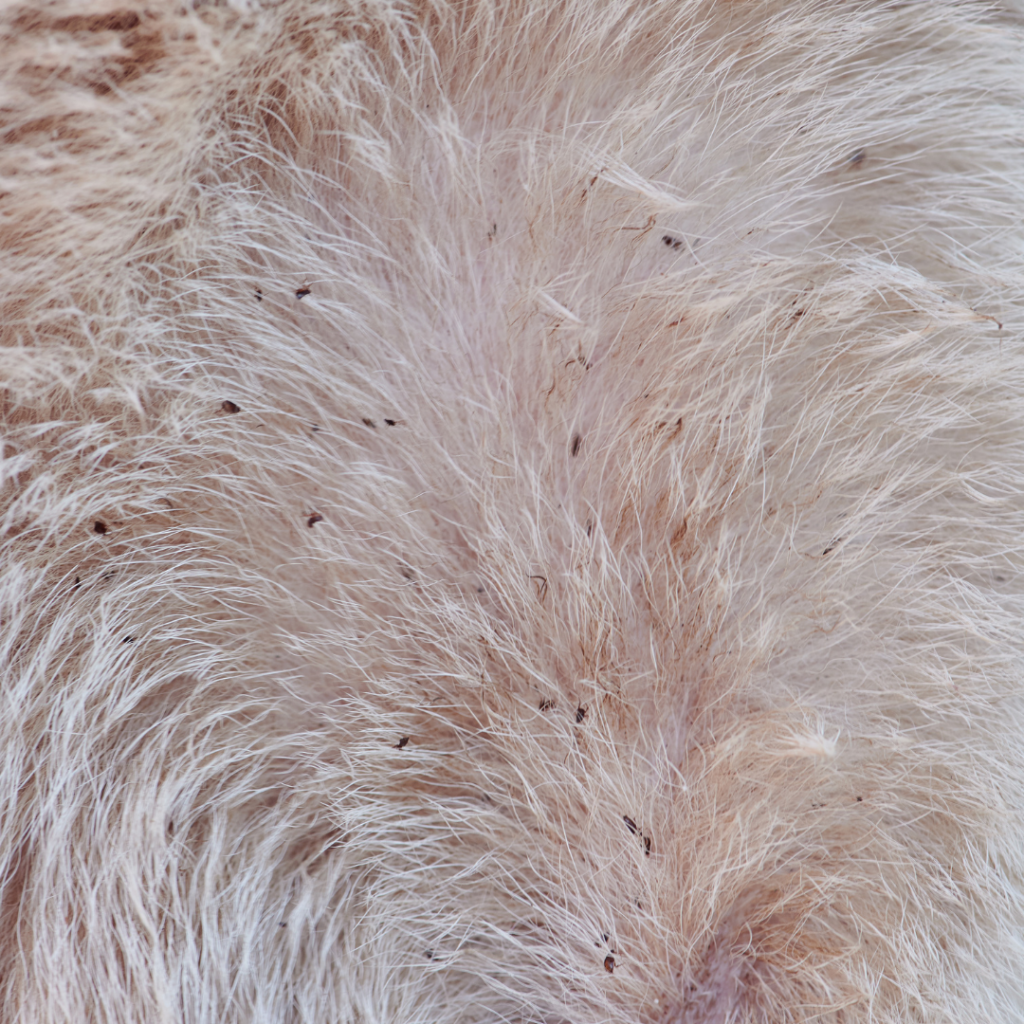
If you comb your dog, the fleas would look like this on the comb:
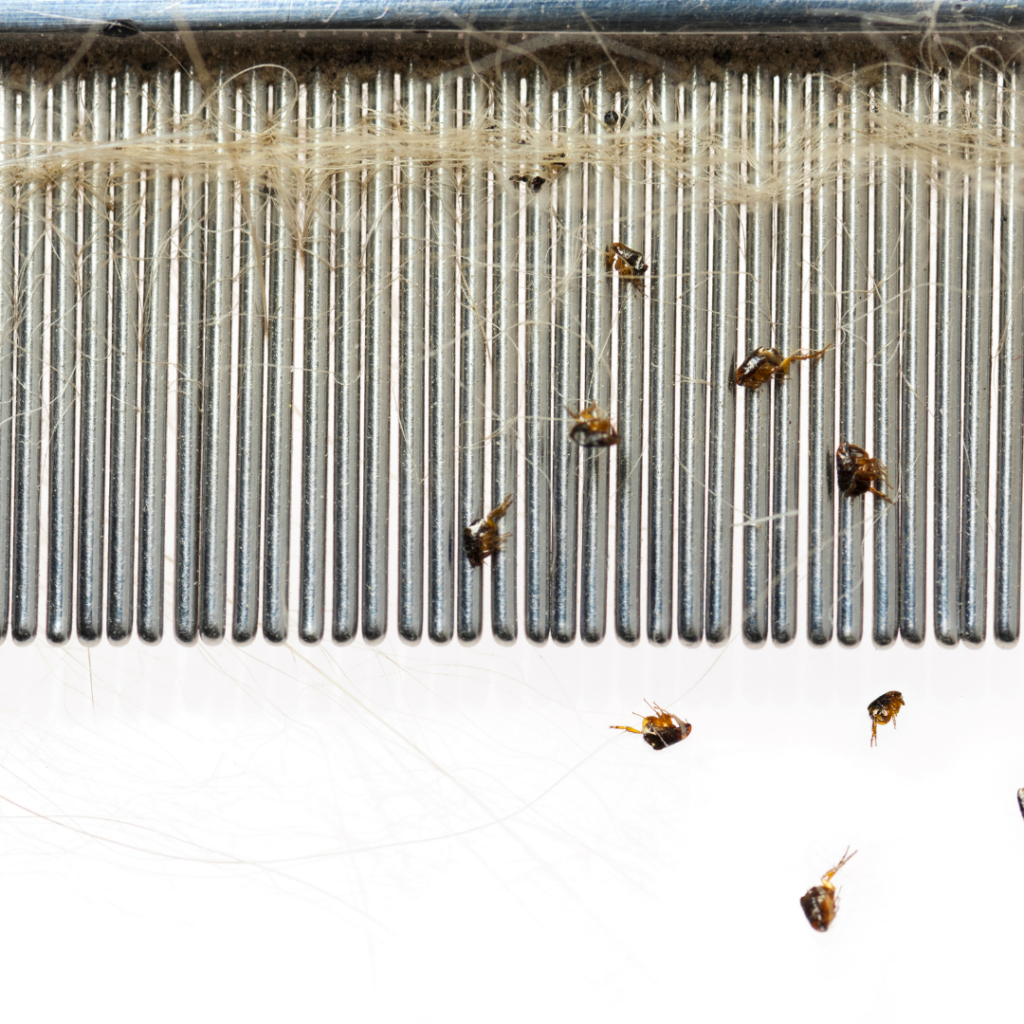
2. What do dog flea bites look like?
Flea bites are small, red bumps in clusters of three or four or a straight line. Unlike a mosquito bite, the bumps remain small. In addition, you may notice a red halo around the bite centre.
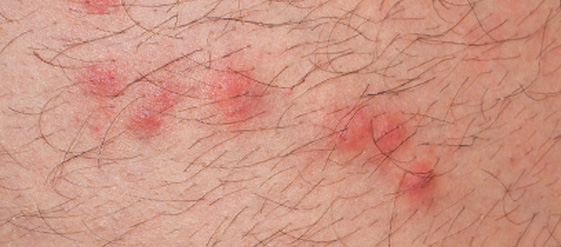
3. Where do fleas bite dogs the most?
If you’re searching for fleas, pay attention to your dog’s neck, belly, lower back, and the base of the tail. The signs that your dog has fleas are listed here.
4. What do flea eggs look like on a dog?
Flea eggs are typically about 0.5 millimetres long and about half as wide. So we’re looking for grains of salt. Flea eggs have a soft shell that is off-white.
5. Do dogs always scratch when they have fleas?
Scratching is a response to itchiness, and the itch is a mechanism to remove a threat. Not all dogs will react to flea saliva, so there is a chance your dog won’t scratch even if they have fleas.

6. Can A Dog Get Fleas From Grass?
Fleas need a host to survive, but they can hang outside looking for their next meal. Developing fleas often live under structures like decking, dense ground cover, vegetation, branches, leaves, or loose soil. These are often hotspots for dogs to lay outside.
Clearing away dead vegetation and debris from these areas can make them less habitable for fleas.
For those in warmer climates, if your lawns are watered with sprinklers, fleas can’t survive in areas which are well irrigated. But this also goes for those of you who get abundant rainfall or have poorly draining areas. Flea larvae drown in flooded areas.
The water also dissolves and washes away the faecal blood from adult fleas, which larvae need to survive.
But yes, when fleas reach adulthood, they may climb blades of grass to get closer to their host.

7. Can dogs get fleas in winter?
Whilst there are seasonal variations in flea infestations, our dogs can still get fleas in the winter. Fleas live on our dogs and homes, and when we pop that central heating on, fleas can survive even the harshest freeze!
8. Can fleas make a dog sick?
These pesky critters can, unfortunately, cause a few problems for your dog.
If there is a serious infestation, the blood loss from feeding fleas can cause anaemia in young and elderly dogs. This means their body doesn’t have enough red blood cells to perform normal functions.
In addition, fleas can carry tapeworm eggs leading to an internal parasite problem. Many dogs can recover from a tapeworm infestation without major complications, but the invading worms can cause nutrient deficiencies in your dog.
Puppies, immuno-compromised and elderly dogs are at the greatest risk of complications from a parasite infestation.
Furthermore, the Bartonella infection, although rare, is spread through bites from fleas, ticks, sand flies and lice. The host animal can then spread the infection to humans if they bite or scratch them. Bartonella infection can cause fever and inflammation of many organs in the body, including the heart. Bartonella species have been found all around the world.
9. Can fleas cause diarrhoea in dogs?
If fleas have transmitted another infection to your dog, they can suffer from diarrhoea. Both tapeworm infestation and Bartonella infection can cause diarrhoea in dogs.

10. Can fleas on dogs get on humans?
Whilst fleas are easier to spot on human skin and so often removed swiftly, they can still bite us before we realise it. Some humans seem more susceptible to flea bites than others, which is thought to be related to individual odour and respiration. Fleas are attracted to CO2 largely because it’s what warm-blooded organisms produce, and fleas need blood.
How to eliminate fleas on dogs
So, how can you eliminate fleas without the conventional, harmful chemical onslaught? Check out our article on natural treatments for fleas on dogs.






